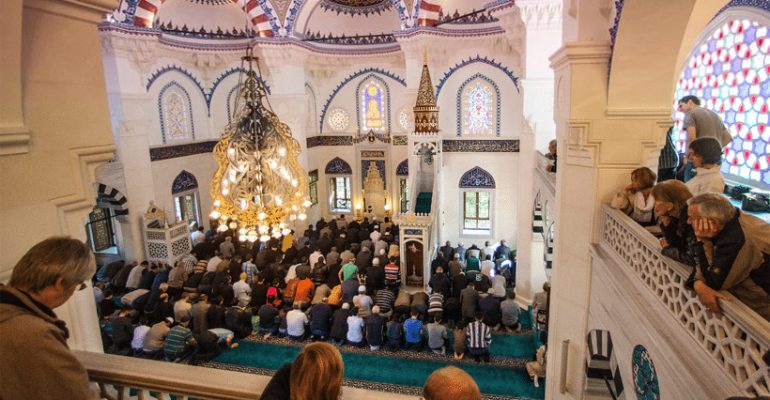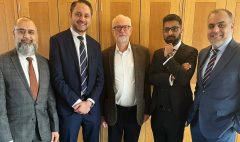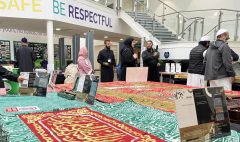Islam in Germany: Muslims prefer to be talked to rather than talked about
October 11, 2017 2024-03-18 1:55Islam in Germany: Muslims prefer to be talked to rather than talked about

Islam in Germany: Muslims prefer to be talked to rather than talked about
Mosques around Germany opened their doors to non-Muslims to dispel common myths and stereotypes about Islam. Nearly 900 mosques across Germany took part in “Open Mosque Day”, an annual event organized by Islamic associations in the country since 1997.
Dr. Zekeriya Altug from the Turkish-Islamic Union for Religious Affairs (DITIB), one of Germany’s largest Muslim groups, said Germans are showing strong interest in the event. “By opening our doors to the public, we want to show that we are transparent, we are open to dialogue, and we are also part of this society,” he told the media during a tour of Cologne’s Central Mosque.
An estimated 100,000 visitors participated in the events across the country, which took place on a public holiday, the Day of German Unity.
Germany’s mosques began annual open houses in 1997 and have carried forth the tradition ever since. Technically, though, most mosques in Germany are open year round to the public upon appointment. Mosques have been opening their doors to the German public for 20 years.
On a day celebrating German unity, many Muslims have reason to wonder if “German unity” applies to them in light of recent federal election results. The third strongest party in the Bundestag will be the far-right Alternative for Germany (AfD), a party which has rejected the Islamic faith as part of German cultural identity. October 3 is the country’s national holiday and, for many Germans, just a day to sleep in or earn some extra cash at work. For mosques around the country, however, it’s the day of their national open house: neighbors can take a tour, satisfy their curiosity about Islam and local Muslims and – of course – eat.
Muslims have become the center of many heated debates over public safety, women’s rights and even loyalty to the German state in recent years. Hence, dispelling misconceptions is one of their priorities. However, they emphasize that this work is nonpartisan, just like their cooperation with local religious groups and charities.
Just a few blocks away from that mosque and theology school in northeastern Cologne is the site of a nail bomb attack perpetrated by the neo-Nazi National Socialist Underground (NSU). It was a hit on the Turkish community and an attack on social cohesion and multiculturalism in Cologne.
The wounds of the attack lie much deeper than the shrapnel that left over 20 injured in June 2004. The terrorist attack on Keupstrasse was one of a dozen the NSU carried out between 2000 and 2007. Yet, despite the attackers’ identities being known to police in the late 1990s, it wasn’t until a botched robbery brought the right-wing terror cell to light in 2011 that officials cleared members of the Turkish community of suspicion.
The case has raised questions about right-wing sympathizers among police and a how large the blind spot to right-wing extremism in Germany is.
And, with the rise of a party like the AfD – one whose leaders have made racist and Islamophobic comments, as well as relativized the Holocaust and have been known to use Nazi rhetoric – critics worry that a far-right party in parliament could embolden the country’s radical right-wing scene…
This year, there have nearly 20 attacks on Muslims and nearly 400 incidents of “Islamophobic crimes,” ranging from hate speech, threats and damage to property, according to a governmental inquiry from the Left party. As it’s the first year officials have assessed the crime rate against Muslims, no previous data for comparison has been analyzed.
Meanwhile, the AfD’s rhetoric surrounding Islam has also raised concerns. In addition to dismissing the religion – one practiced by over 4 million people in Germany – as being a part of German society, the AfD also wants to prohibit minarets and the call to prayer. “The AfD sees a great danger to our state, our society and our set of values through the spread of Islam and the presence of over 5 million Muslims, whose numbers are increasing,” the AfD said in its party platform, which states that Muslims who obey the law and are “integrated” are “valued members of society.” The far-right party denies all accusations of Islamophobic or racist rhetoric…
Source: Deutsche Welle








